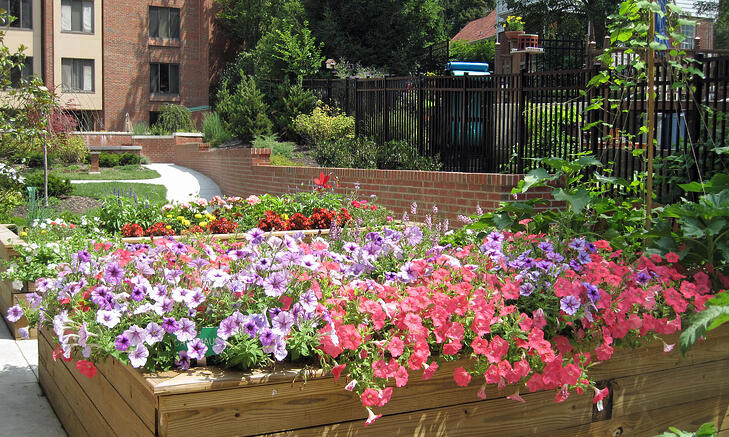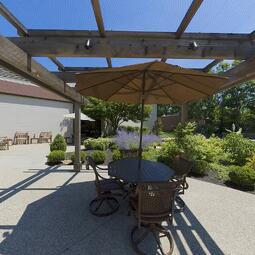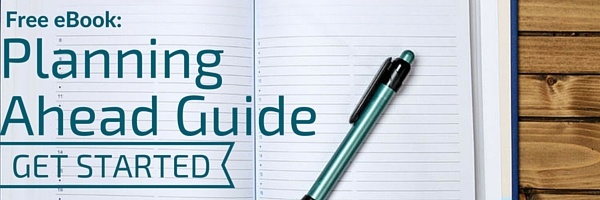 Beautiful raised beds make gardening more accessible as we age.
Beautiful raised beds make gardening more accessible as we age.
We’re fortunate enough, in the river valleys of the Midwest, to live in a region well-suited for growing a variety of things.
Our forests are alive with fragrant flowers, berry bushes, nuts and trees of all sorts. Every year our fields grow tall stalks of golden corn, millions of bushels of soybeans, wheat and vegetables. Our orchards and fruit farms yield dozens of apple varieties, cherries, wine and snack grapes alike, plums, blackberries, peaches and much, much more.
Our land is fertile, no question. For gardeners, it’s a paradise. How could that benefit residents of Cincinnati’s senior living communities? Read on to find out.
1. It’s wonderful exercise
Sure, gardening makes you sweaty. It’s dirty. It’s tiring. There are bugs to contend with.
And, true, gardening can be a little tough on the knees and the back. You have to crouch. You have to lift. If you’re growing a vegetable garden, you have to plow, hoe and dig.
But all that physical activity yields definitive health benefits. It builds lean muscle. It limbers up stiff joints and improves a senior’s flexibility.
Gardening just 2½ hours a week can significantly reduce a senior’s risk of serious chronic conditions
According to the US Centers for Disease Control and Prevention (CDC), gardening just 2½ hours a week can significantly reduce a senior’s risk of serious chronic conditions like obesity, high blood pressure, type II diabetes, osteoporosis, heart disease, stroke, depression and some cancers.
Moreover, because gardening requires concentration, decision-making and aesthetic evaluation, it may help to keep the mind active and prevent the onset of dementia.
2. It’s mindful
Humans’ love of growing things is more than casual. It’s deep in the race. The act of growing plants, be they sustaining, ornamental, or environmentally rehabilitating, is a total mind-body activity.
When gardening, one hears the hum of bees and other pollinators. There are the sensations of wind on your face and of soft, warm earth between your fingers. There are the fragrances of open blossoms and the sight of incomparably brilliant natural colors.
But there’s little else. No financial worries. No droning news cycle. No sickness or death. Those all, for the moment, fade into the background and become inconsequential.
Gardening is a peaceful activity. There is only the space between you and nature.
Jack Fix shares the Deupree House garden
Deupree House resident Jack Fix shares the fruits of his 10-year project constructing a garden behind Deupree House. Residents and guests alike enjoy the serenity of the garden, which consists of rock from a nearby stream, as well as plants and trees he found growing nearby and received from other residents who wanted to share them.
3. Communing with nature may aid healing
Humans may have an inherent desire to be in contact with greenspace. This idea, called the “biophilia” hypothesis, posits that lack of access to the natural world — caused by the proliferation of artificially created structures, roads and other development — may in and of itself be making us sicker.
According to the University of Nebraska Cooperative Extension program, “physical, as well as visual, access to nature helps people recover from illness quicker, reduces stress and lowers blood pressure.
Solid research has backed up that claim.
“The idea that interacting with Nature can offer positive effects on health and well-being seems to be reasonably well substantiated,” wrote Grinde and Patil in a findings review, published by the International Journal of Environmental Research and Public Health, of 50 empirical studies that investigated the topic. “Thus, the biophilia hypothesis has merit.”
“As a consequence of our evolutionary history,” they asserted, “one would expect that plants are agreeable, and that the absence of greenery is sensed, possibly unconsciously, as a stress factor. In other words, the presence of plants can impact on the human mind.”
In a comprehensive literature review published in the journal Health Promotion International, Maller, et al.,agreed.
“The healing effects of a natural view are increasingly being understood in stressful environments such as hospitals [and] nursing homes,” the group wrote. “Seeing nature is important to people and is an effective means of relieving stress and improving well-being.”
4. It’s social

Here at Deupree House, and in communities everywhere, there are gardening clubs. People come together to share their tips, success and failure stories, to show off the fruits of their labor, and to enjoy growing things.
Indeed, it could be argued that communal gardening is the very basis of human civilization. The earliest city-states were founded to support agricultural activities, as humans transitioned from nomadic, hunter-gatherer shepherds to agrarians.
Although one might debate the merits and consequences of that transition, there can be no doubt: without the efforts our original gardeners, no one alive today would exist.
5. It’s life-affirming
A garden’s growth cycle is fascinatingly beautiful to watch. For all the work one puts into it, gardening pays off a hundredfold, over the course of a season, as blossoms open, as leaves seek the sun, as fruits ripen, when seeds fall.
Even in the depths of winter, when all the previous year’s plants are withered and decaying, there’s the knowledge that there will be a spring. And everything will renew and live once again.
For seniors of faith, that’s spiritual. For those who aren’t, it’s reassuring that generations will sprout, grow and bear fruit well after we are gone, because we have sown their seeds.
Is gardening good for Cincinnati seniors’ bodies and minds? Yes. In so many ways.












